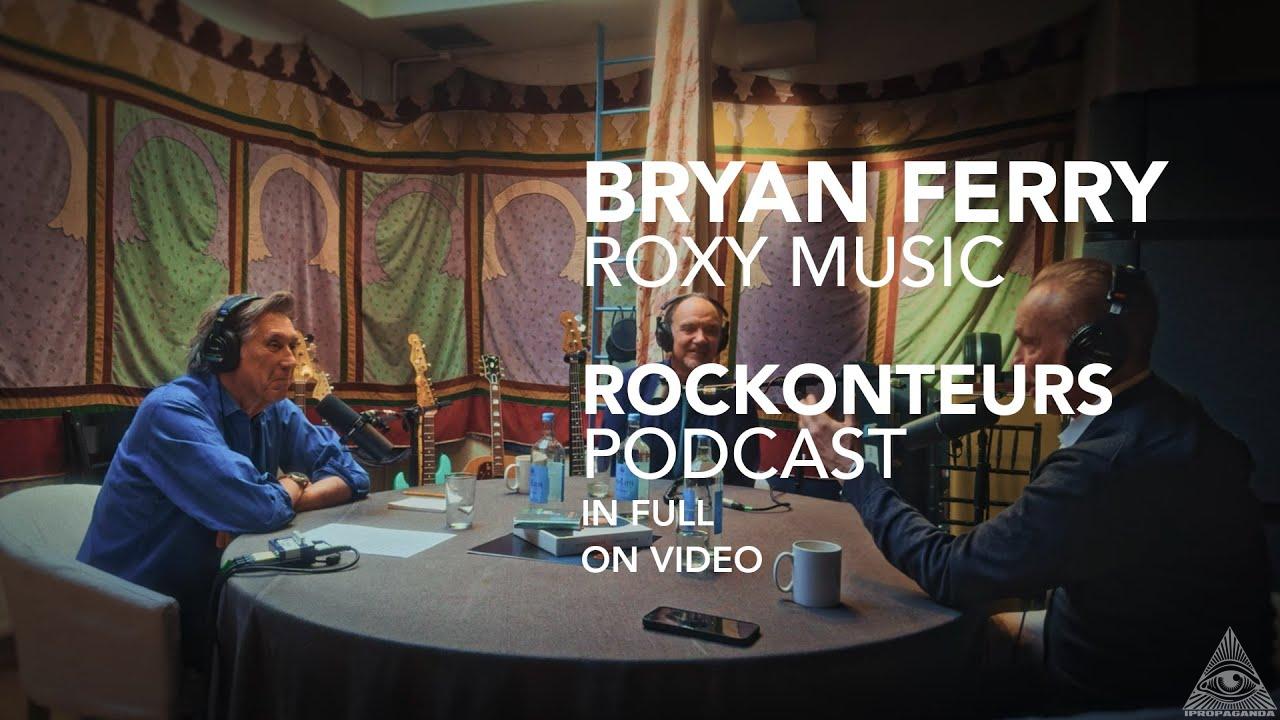
Bryan Ferry, Roxy Music, and the Art of “Loose Talk”: Inside a Career That Never Stopped Curating Itself
A conversation in a room full of history
Picture Bryan Ferry at home base: the London studio where he’s road-tested bands, parked white dinner jackets, and kept shelves of old reels that still hum with ideas. It’s where Gary Kemp sat down with him—swapping stories about first meetings, shared projects, and the peculiar thrill of hearing that bass line shake a room—to talk about a life spent turning taste into sound.
What follows isn’t a transcript. It’s an essay sparked by that conversation: the threads Ferry pulled, the names that mattered, the accidents that became aesthetics—and the new chapter that binds it all, Loose Talk.
The modernist method
Ferry describes his process with a curator’s calm. Words first—here, written and performed by visual/performance artist Amelia Barratt—then a long search through musical fragments until the right atmosphere clicks into place. Sometimes the “right” take is the first take; sometimes the “right” music is a piece he wrote decades ago and never quite found a home for. In this studio he can do both: edit text so it breathes, and sift an archive of sketches for one that suddenly feels inevitable.
That’s exactly how Loose Talk works: a dialogue between Barratt’s cool, close-mic’d storytelling and Ferry’s meticulously upholstered instrumentals. It’s also Ferry the director—he shot and edited the first video himself—guiding the presentation down to cover art steeped in film-noir shadows.
Context: Loose Talk marks Ferry’s first album of new, original music since 2014, built around Barratt’s spoken word and music developed from older Ferry demos; it released on March 28, 2025. Earlier, Ferry previewed this new mode with “Star,” a 2024 single conceived with Trent Reznor and Atticus Ross and featuring Barratt.
When taste becomes a band
Roxy Music wasn’t only a sound. It was a worldview shaped by cinema palaces, sleeve art, thrifted glamour, and art-school wit. Ferry liked the oboe as much as the synthesizer; he liked the discipline of a rock-solid drummer as much as the gleam of a tuxedo lapel. That mix—high style and hard groove—made the group’s earliest run feel self-contained, from the celebration of surface on Roxy Music to the city-at-night mood of For Your Pleasure, released March 23, 1973, the last album with Brian Eno.
The look was engineered as carefully as the records. Antony Price’s tailoring staged Ferry as the cool narrator: jaded, amused, maybe wounded, always immaculate. And the sleeves—choreographed with a photographer’s eye and magazine-spread poise—taught generations that pop could be a design language.
The elegant groove: on bass lines and lifers
Ferry lights up when the talk turns to rhythm. He hears a straight line from the taut swagger of “Love Is the Drug” to Nile Rodgers’s precision-funk universe. Rodgers has long cited Roxy’s impact on the genesis of Chic—an aesthetic revelation as much as a musical one—which makes their shared DNA feel obvious in retrospect.
Another name keeps surfacing: Alan Spenner, the sumptuous, singing bassist whose lines helped anchor Roxy’s late-period glide and who plays on Avalon (released May 28, 1982)—including the title track. Ferry still pulls sounds from that era’s orbit; in Loose Talk he finds places for long-shelved sketches, the kind Spenner once graced, and gives them new settings.
And then there’s Ferry’s own solo pop perfectionism. He jokes he could have lived happily as “the ‘Kiss and Tell’ guy”—the single arrived February 1, 1988—because he knows how precisely that record hits: cool vocal, glassy textures, pulse like a catwalk metronome.
From art school to picture palaces
Ferry’s palette widened early. A grammar-school art teacher opened doors; cinema sealed the deal. The band name came from a handwritten list of old movie theaters—the places that promised glamour, drama, and orchestration of feeling. That’s the Ferry hallmark: treat pop like a camera move. Every detail is mise-en-scène.
Which is why the studio is a museum of tools as much as a workplace. Old tapes matter. So do the people who walk through the door: the session singers who can color a chorus in one pass; the unusual guitarist whose line twists where most would strum; the drummer who keeps the elegant chaos on a leash.
Collaborations that reframe the mirror
The conversation loops to David Gilmour and the 1986 single “Is Your Love Strong Enough?”—a Ridley Scott world of vapor and light that Ferry, Tim Pope, and Gilmour helped define. It’s a perfect illustration of Ferry’s rule: change the cast, keep the atmosphere recognizably yours.
Fast-forward to “Star.” The Nine Inch Nails connection seems unlikely until you hear it; Reznor and Ross’s skeletal tension fits neatly under Ferry’s velvet voice, while Barratt’s lyric sharpens the silhouette. That single in 2024 was less a comeback than a thesis statement for Loose Talk.
Why Loose Talk feels new—and familiar
This album doesn’t ask Ferry to impersonate his younger self. Instead it does what he’s always done at his best: it places a voice—now Barratt’s—inside a highly designed space and lets arrangement, editing, and negative space do the storytelling. Critics have called the result a set of “eerie duets,” with the mood nodding toward film score minimalism; Ferry himself frames it as an invitation to notice more. The cinematic instinct is still in charge.
The long view
From the outsider glamour of For Your Pleasure to the refined hush of Avalon, and now to the noir poetry of Loose Talk, Ferry has treated recording like a branch of the visual arts: composition, texture, lighting, edit. His gift isn’t just taste—it’s the ability to make taste audible.
And the future? Ferry shrugs, half-serious, that he’s still learning the trade. You believe him. In this studio, there’s always another reel, another take, another way to make the picture come into focus.
